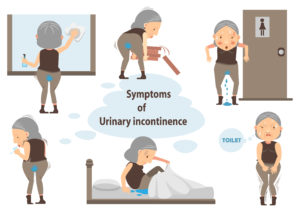How Effective is Botox for the Treatment of Bladder Leakage (Urinary Incontinence)?
If you have any questions, to schedule a consultation or if you need a second opinion, please contact us or call: 646-663-4151
Dr. Alex Shteynshlyuger is a board-certified urologist in NYC who specializes in treating men and women with urinary problems including frequent urination, difficulty emptying the bladder, urinary urgency and incontinence.
Botox for Treatment of Bladder Control Problems and Urinary Leakage: Proven Benefits for Men and Women
Studies show that Botox is one of the most effective treatment options for treatment of urge urinary incontinence in patients with overactive bladder and neurogenic bladder.

In patients with overactive bladder and urge urinary incontinence (UUI), over a period of >3 years, Botox was shown to have consistent benefit with greater than 50% improvement in the number of urinary leakage episodes. On average patients who previously did not benefit or could not tolerate oral medications had 5 urinary leakage episodes per day; after treatment with Botox, on average they experienced 2 episodes per day.
Botox is well tolerated the only significant complications being a urinary infection and incomplete bladder emptying in some patients.
Important Points:
- Patients did not benefit from oral anticholinergics, medications used for the treatment of symptoms of an overactive bladder such as frequent urination and urinary urgency. These medications include oxybutynin, Detrol LA, Vesicar, and Myrbetriq. Because of lack of benefit or side effects, many patients stop taking the pills.
- When Botox was administered to patients who failed treatment with oral medications, Botox reduced the frequency of urinary incontinence (22.9% becoming completely dry). It also improved other symptoms of OAB and the quality of life improved. Patients were less tired, less anxious, more able to take longer journeys and generally felt more alert and happy.
Summary of Botox Studies:
- As many as 9 out of 10 had a reduction in accidents by 50% or more
- Almost half became completely continent
- Quality of life score tripled
- Work when other treatments such as oral medications do not work
- Just one treatment could last for over a year in a third of the patients
Botox is well tolerated and effective in treating OAB. The treatment is easy and you do not have to bother with taking pills or medicine. For most patients, one procedure will last over six months, and may even last the full year.
If you have any questions, to schedule a consultation or if you need a second opinion, please contact us or call: 646-663-4151
